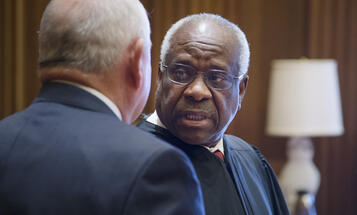
McCutcheon Money Floods the 2014 Midterms
Matea Gold reports in today's Washington Post that more than $11 million in McCutcheon Money has already flowed into this year's mid-term congressional elections.
That's money that can be directly attributed to the Supreme Court's most recent disastrous campaign finance ruling, McCutcheon v. FEC.
Previously, wealthy individuals were limited to contributing $123,200 to all federal candidates, parties, and PACs combined (not including Super PACs). That's more than twice median family income and not exactly an onerous restriction on anybody's political participation. Rather, it was a basic protection to ensure that the wealthy few can't flood the system with cash, drowning out the rest of our voices—and fewer than 1000 people were affected by the cap.
Last year, Demos and U.S. PIRG predicted that striking the "aggregate limit" could lead to more than $1 billion in additional contributions through 2020 from a small number of extremely wealthy donors. We noted that this would shift the balance of power further away from ordinary citizens and towards the "donor class." And, we pointed out that this is a big problem for our democracy because members of the donor class have sharply different policy preferences than the general public on issues ranging from the minimum wage to the government's role in creating quality jobs.
Yet in April the Roberts Court wiped away the aggregate limit in McCutcheon v. FEC, allowing millionaires and billionaires to give as much as see fit (as long as they abide by limits on contributions to any individual candidate, party committee, or PAC).
Gold reports that just 310 donors were responsible for the $11.6 million in over-the-cap giving, and more than $50 million in total. Looks like our prediction is starting to come true.
This adds to the overwhelming evidence that the Supreme Court's approach to money in politics is fundamentally flawed and that it's time for a total reboot. The Court has reversed course on New Deal economic protections, racial segregation, LGBT rights, and more.
We can force a similar shift through a combination of channeling broad public support; pushing for a new generation of justices with a common sense, pro-democracy view of the First Amendment and Constitution; and strategic litigation to overturn Citizens United, McCutcheon, and related cases.
Or, we can amend the Constitution to clarify that the people have the power to curb the influece of big money on our democracy. The U.S. Senate will vote on such an amendment on September 8th.
Either way, we must move forward to forge a democracy in which the strength of a citizen's voice doesn't depend upon the size of her bank account.


